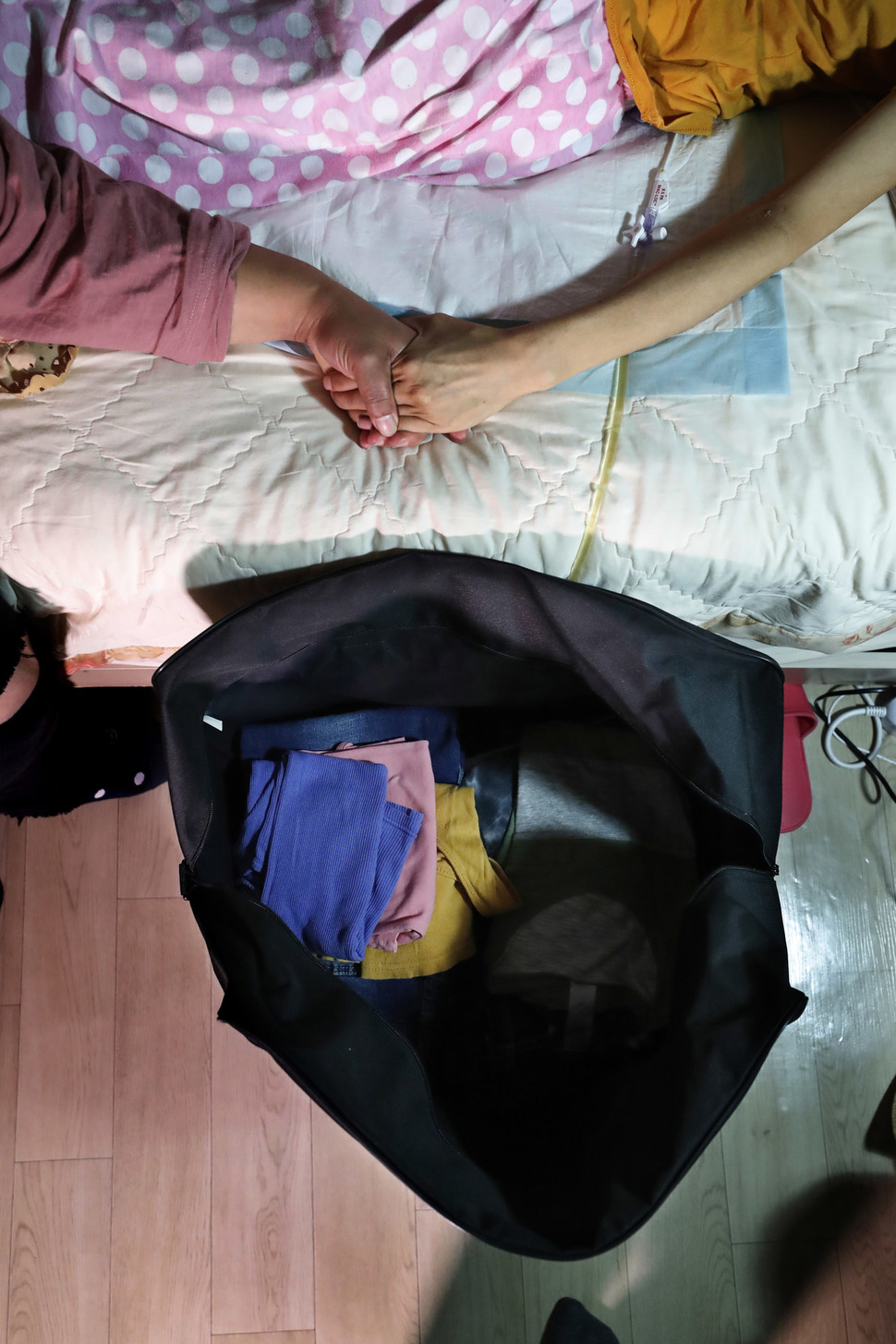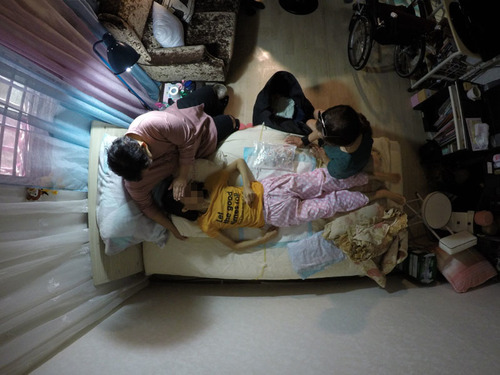 |
|
Migrant worker Tiel grabs her friend’s hand after packing up to leave South Korea.
|
Identity of undocumented worker undisclosed to protect her identity
“I never imagined that so many would help me like this. I’ll carry this intense gratitude I feel with me when I return home.” I met Tiel (pseudonym) in a tiny room in a back street of a neighborhood crowded with low-rise apartments in Seoul, a city where 10 million different lives unfold. Like so many other migrant workers who have come in pursuit of the “Korean dream,” Tiel opened a new chapter in her life in 2001, hoping for a better future for her family back at home. But now, she’s preparing to return home, her body riddled with disease. As an undocumented migrant worker, Tiel waited until the pain become unbearable before letting her friends take her to the doctor, where she was diagnosed with stage four cervical cancer. The doctors told her that, if she received chemotherapy, she could expect to live two more years; without treatment, they figured she had one year left. Still holding on to hope, she figured it would be better to get treatment in South Korea, in light of her symptoms. But it wasn’t an easy choice to make: her colleagues were losing sleep to keep tabs on her while working three shifts at the factory, and she couldn’t afford an extended treatment regimen. In the end, Tiel decided to return home. Just as Tiel was swallowed up by this massive city without a trace when she arrived in South Korea, her departure would have been as fleeting as the morning dew, which evaporates with the sunrise. But Father Zacchaeus wasn’t willing to let Tiel go like that. Father Zacchaeus is the priest who directs Yongsan Sharing House, an Anglican community that serves various disadvantaged and underprivileged members of society in the area. The community has too much to do, and too little money to do it with, which has forced it to let go some of its staff. And Tiel was just one of several patients at the community. After mulling over his options, Zacchaeus warily posted Tiel’s story on social media. Because medical care in her home country is much worse than Korea’s, he wanted to send her off with as much money as possible; without those resources, he said, her final days on this earth would be even more painful. In order to protect the woman, he withheld her exact age, nationality, and real name. But her story was shared, and comments were posted, drawing together people who prayed for the peace of a foreigner whose face they’d never seen.
 |
|
A friend of Tiel’s looks after her while balancing triple shifts and losing sleep.
|







